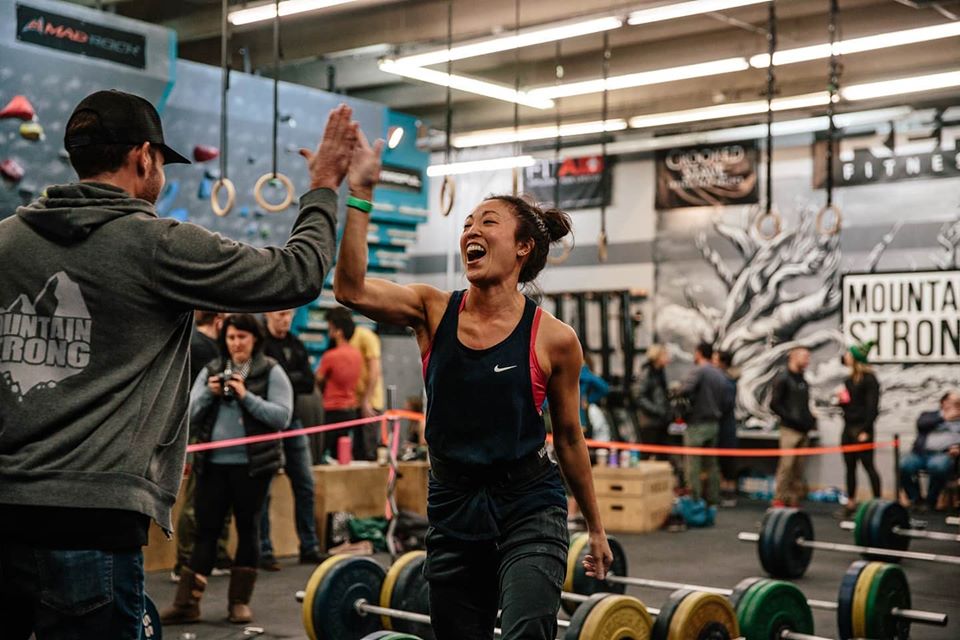
Emmett Cookson doesn’t have much time to talk. Adhering to self-isolation, he’s booting up his computer for a game of Dungeons & Dragons with some routesetter buddies. Although he’s entering the game as a rogue, he’s forthright when it comes to the coronavirus pandemic wreaking havoc in his industry.
“I knew from the beginning I was getting into a volatile industry when I started coaching,” he says. “But I didn’t plan for a pandemic, you know?”
As climbing and fitness gyms snap the lights off, the climbing gym industry – still in relative infancy – has been forced to reckon with forces beyond control. For climbing and strength/conditioning coaches, and the studios and gym owners who employ them, an escalating health crisis has led to an uncertain future.
“Our last class was on Friday [March 13] and we officially shuttered the doors on Monday, when word came out from the governor,” says Jamie Gatchalian, coach and co-owner at Mountain Strong, a climbing-focused fitness center in Denver, CO. “We normally have space for upwards of 15 people to come to class. We limited that to five in order to spread people out throughout the day and adhere to some of the social distancing stuff that was already starting to happen. And then, rightfully so, the governor stepped in.”
In a relentless tide, gyms sent out notifications and keyed their locks, one after the other. Paul Corsaro, owner of Crux Conditioning in Chattanooga, TN and a satellite coach for Power Company Climbing, closed up shop on Monday, as well. “A little bit ahead of time, but we kind of saw the writing on the wall. My wife’s a nurse at the ICU at the hospital downtown…it was coming.”
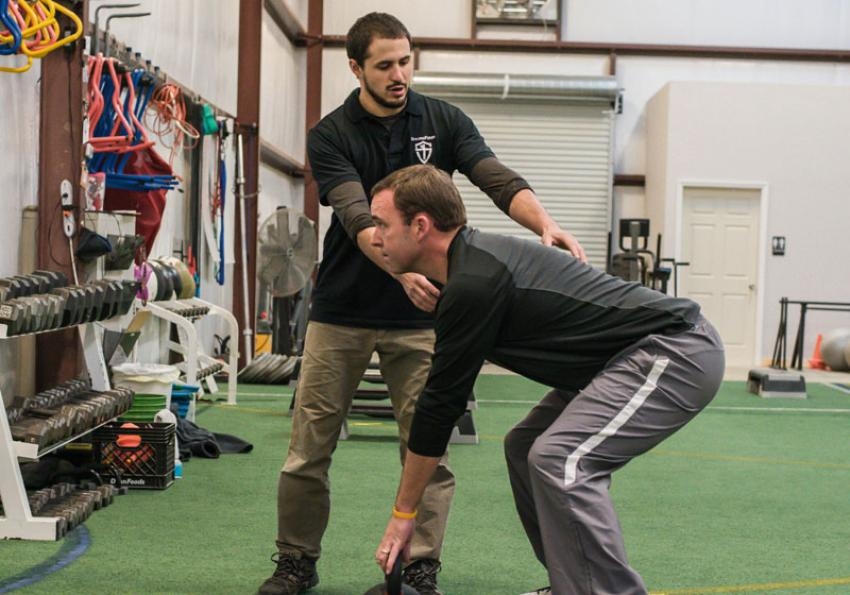
The blunt stroke of a pandemic causing a global pause in life, commerce, and income has owners nervous, for their own prospects and those of their employees. Corsaro, although hopeful, ruminates on the unknowable. “Every day I think something different, every couple hours. There’s been that mass explosion of climbing gyms this last year or two years. The market is saturated and I’m sure the margins are really thin for most gyms. It’s going to be a really challenging time.”
Gatchalian shares his uncertainty while maintaining gratitude for the climbing community, historically cozy and interwoven. “People aren’t cancelling their memberships. They’re helping us. I’ve seen the numbers; I think we’ve had maybe one or two cancellations out of 90-plus members.” A former restaurant worker himself, he’s quick to note that every segment of society faces unprecedented challenges. “We clearly have people who are a part of the service industry who are struggling right now, so look, we’ll waive membership fees [for March]. If you’re still struggling by the time April rolls around, we’ll work with you.”
Gatchalian chuckles, a welcome sound. “That’s the nice part of not being Globo Gym. We can deal with individual needs and struggles as we go through this, working with everybody to navigate how to make sure that we’re still taking care of our members even if we can’t be in the same space together.”
Although the sentiment resonates, the cruel truth is that capital opens the doors, keeps the lights humming, and pays for staff. Guarantees of future cash flow remain uncertain, while staff and coaches scramble to find a way to put food on the table. “Rent in our space isn’t cheap, but we have enough that if we had to last, without any new money coming in, we’ll last several months. With how tight-knit of a community we’ve been able to cultivate, we’re realistically optimistic that we’re going to come out above water when everything is said and done.” Gatchalian pauses, sharing a now ecumenical reflection. “But, we can’t predict how things are going to twist and turn over the next several months.”
As the pandemic builds momentum before any foreseeable crest, Corsaro and his team assume a holding pattern. “We’ve had a lot of very supportive members of our crew who are saying they want to keep their auto-pays going and they’re just going to do online training. It’s a nervous time. I’ve had to cancel a couple of in-person assessments, but we really won’t know until April 1st. Probably May 1st, it will be very interesting if this progresses until then.”
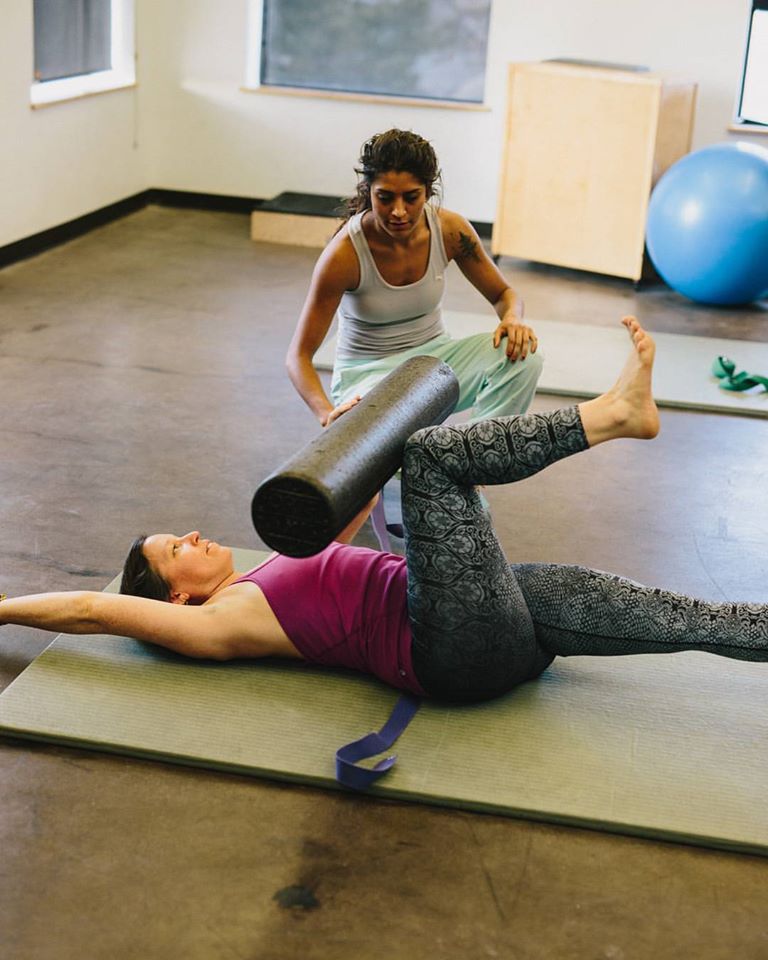
As fitness and climbing gym owners keep a thumb to the pulse of membership, coaches who’ve lost their places of employment scramble to retain clients. Joslyn Corredor, owner of her own training company Body En Route, in Boulder, CO, as well as providing strength and conditioning instruction for Team ABC, the nation’s most elite youth climbing program, has seen a concerning share of her income disappear. While Team ABC closed up shop, her clients have dwindled. “I try to keep around 20 clients,” she says. “When the scare happened, I immediately lost four people and every person counts a lot. I have one or two people I’m going to probably lose next month. To me, I’m just watching my numbers drop and that’s a big deal.”
Kris Hampton, owner of Power Company Climbing in Lander, WY, as close to a climbing-specific training empire as exists, has also monitored a dip in business. “There’s definitely been fewer orders, less people buying training plans because our plans are essentially built around you having access to a gym. There’s been less income coming in this last week, two weeks. I expect that to continue for a while.”
Juliet Hammer, a strength and conditioning coach with Alt Fitness in Denver, chuckles, determined to blaze a trail through unprecedented obstacles. “There’s a funny meme I saw. I don’t know if you saw that episode from Friends where they’re moving this giant couch up the stairs? Ross, screaming, ‘Pivot!’ That’s pretty much where we’re at. Pivot.”
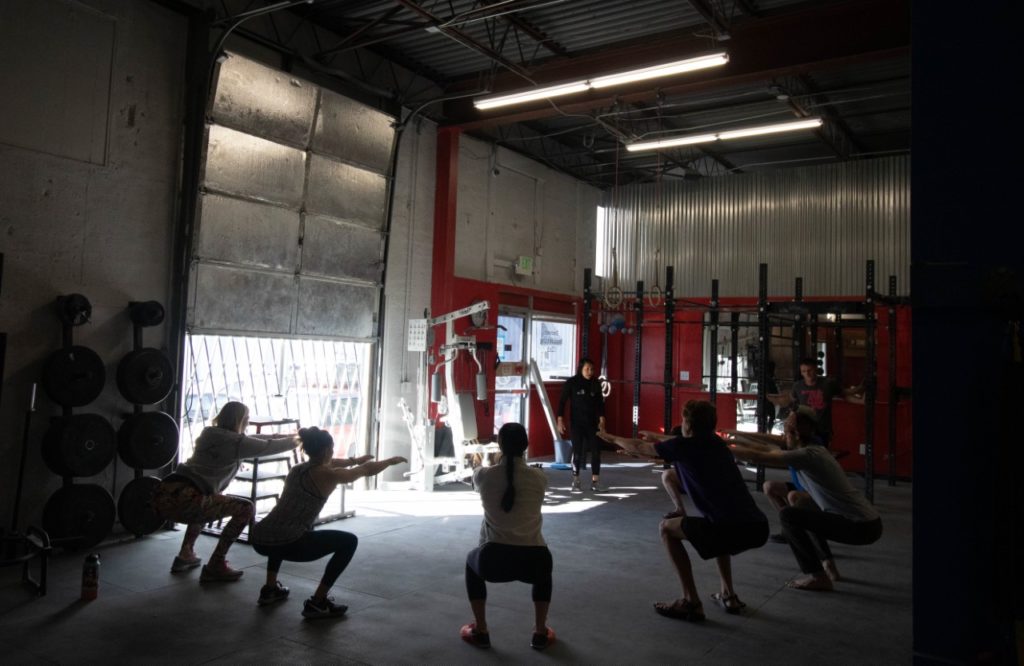
Many coaches and trainers have embraced a hybrid training philosophy, combining in-person assessments and sessions with online instruction, through remote training and highly-processed plans that allow the athlete to track individually. With gyms shuttered and no end to the spread of COVID-19 in sight, these coaches are leaning on their app-based and online programs to stay afloat.
“I think that’s going to be the play,” says Corsaro, “just making sure you set things up to provide enough value for people to not just contribute, but to get value out of it. Online and remote training is going to be the way to go, at least for the time being.”
Gatchalian breathes a sigh of relief as he recounts some of the early decisions made at Mountain Strong. “Thankfully, [remote training] is something we pushed early on. We have a subscription model for our training site where people, if you pay a small fee, get access to every four, six, or eight week training program that we have. It gives you this whole wealth of knowledge. We’ve put it out to our community, and that goes beyond just our members. Any friends who are interested in any of this stuff, we have discount codes. We’re always willing to hook somebody up to keep going for however long this lasts, what we’re dealing with right now.” He points to free “workouts of the day” they post on Instagram. “We’re just trying to keep people aware of the fact that we can still help you if you help us.”
Hammer acknowledges remote training as a remaining siphon of income. “I was training up to 35 sessions a week, which is now zero in-person sessions. So, right now we have a handful of clients where we’re doing these virtual one-on-one sessions. They’re in their house; I have a nice little production set up in my garage, and I walk them through a workout. They’ve been liking it so far, but at this point I have three sessions scheduled for next week. 10 percent of my regular business. A big cut. But one lady had just a set of 10 pound dumbbells and we got it done. We did it.”
Corredor, along with her remote clients, also trains Olympians Colin Duffy and Brooke Raboutou. “Technically, at the gym I rent from, no one goes in there and we bleach everything. So, I’ve seen [Brooke] twice. When it’s there, she’s training in gloves and I’m yelling from afar.” She laughs at the absurdity of it all. “That’s an Olympian, so it’s a little different.”
Some coaches and trainers, however, have neither a sanitized training facility nor a virtual platform from which to gain income and retain clients. Dave Wahl, a strength and conditioning coach in Denver, has sewn together an astounding resume over almost two decades of coaching athletes to podiums and outdoor achievement. Every trainer in America knows his name. He’s successfully run his business through referrals, which previously kept him relentlessly booked.
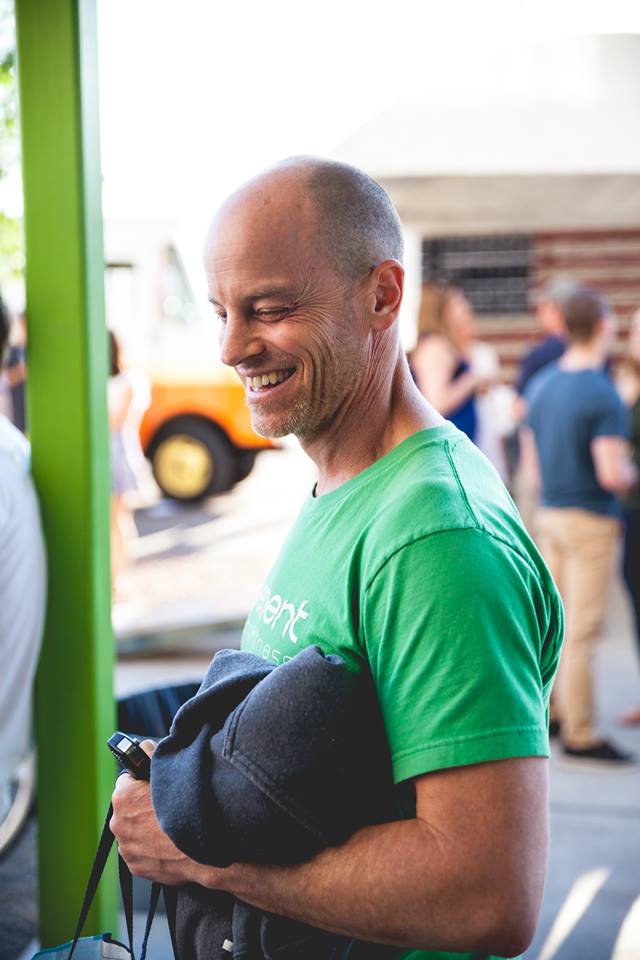
“Last year I worked seven days a week,” he said, gaining breath after a run on his home treadmill. “I had to quit going to Boulder because I had too much work. I was getting burnt. I have rarely had time for a vacation. Last year my vacation was going to Nationals. I paid to go and go into ISO with the kids and it was basically work that I paid to do. But now, I’m down to zero clients.”
Wahl works out of Movement Climbing and Fitness in Denver, but that was his only platform. He doesn’t have a website. He hasn’t cultivated an online presence. Although his inaugural website has been in the works for a couple months, he’d never felt the need for internet exposure.
“I’m in a pretty bad spot right now,” says Wahl, an unthinkable situation for one of the nation’s most respected climbing coaches. “In hindsight, it’s a major mistake on my part, not to have any social media or a website with videos and a programming placement already worked out. I’ve probably put myself in a worse position than anyone else.”
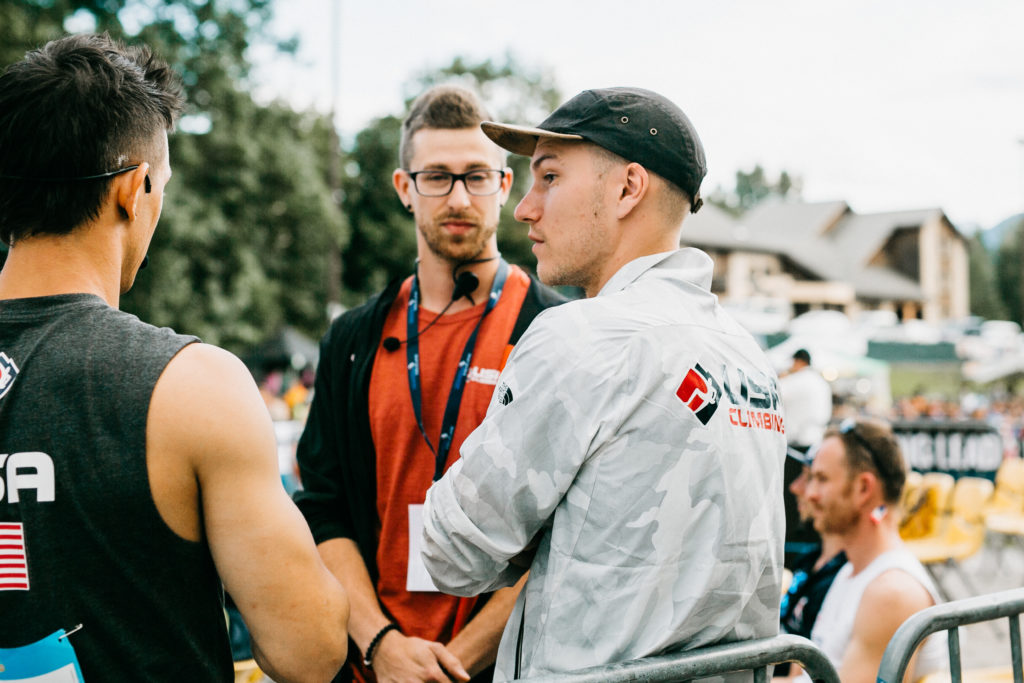
Cookson, who also coaches renowned athletes like Maureen Beck and the USA Paraclimbing team, laments his lack of online presence, even with a skeletal website. “It really hurt when they cancelled the para competitions. I have some clients still reaching out, but that’s mostly parents donating. I want to work, you know? If I can’t fall back on my computer science degree, I might have to go across the street to King Soopers.”
Hampton, who has diversified his training and coaching platform perhaps more than any other coach in the nation, laments the hit to some industry leaders. “When you’re tied to a gym or a location and that thing disappears, then all of a sudden the rug’s been pulled out from underneath you completely.” He compares his business philosophy to that of an underground hip hop label, with a variegated stream of income and ownership over the entire operation. “The parallel I see there is, you can create this amazing piece of work, but if you don’t own the masters and you don’t have a following on your social media – if you don’t have a label to put it out – then once that big label disappears they take your work with them. They take the ability to reach your fans with them.”
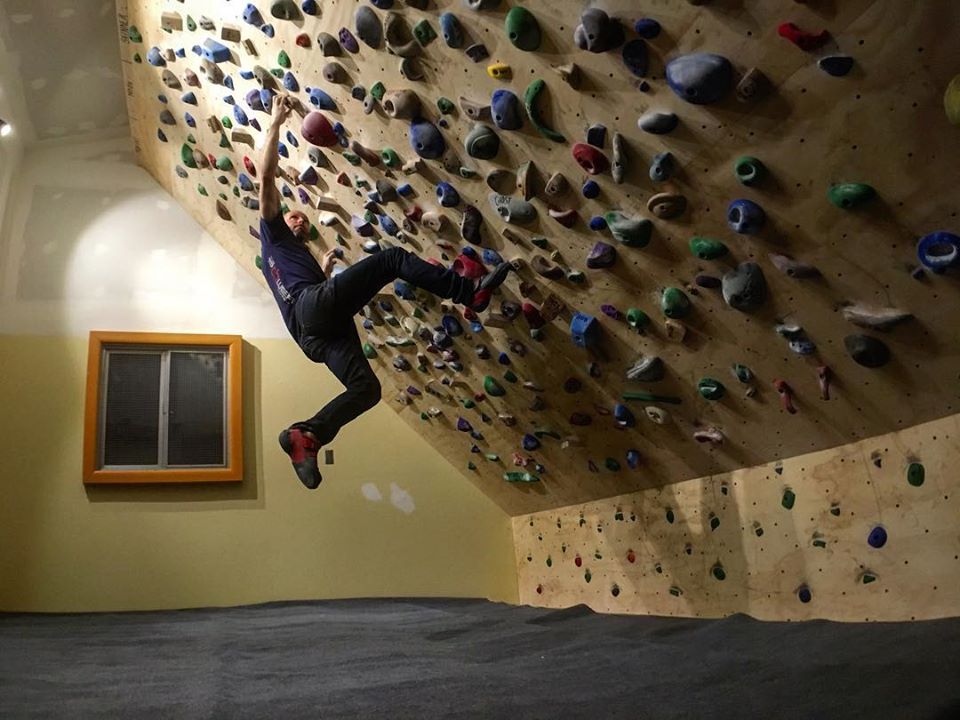
Every trainer in America is reaching out to former, current, and prospective clients, whether they have remote training access or not.
“It’s sales, you know? You only get a percentage of those. I think it’s going to be casting a wide net and doing as good of a job as I can with the people who buy my services,” says Hammer. “I’m not begging for donations. I want to work. I’m really passionate about my job and I love seeing the results at the end of a four week program. I want to give people a great service and get them psyched and stronger.”
Cookson scrambled to sketch out a new training program, fully personalized to cater to each client’s home set-up. For every client he gains, he’s donating 10 percent of profits to a charity of his choice. Although his USA coaching responsibilities hover in a holding pattern, he’s psyched. “I’m hoping [my new programs] will keep people moving and in good shape so that if they are affected by the virus, they suffer less from it. I am also looking out for all of my stir-crazy climber friends who don’t know where to start when it comes to training. Plus, I figured if all these people were willing to support me and make sure I was doing alright during the downtime, it might be nice to redirect some of that money to others in need.”
Corsaro, ever upbeat, echoes, “That’s what times like these bring about, is that innovation and people forced to figure shit out. If you support us, we’ll be here to work with folks and keep getting people stronger and keep getting people motivated. We don’t want to go anywhere. We want to help people. By supporting us we will happily bust our asses to support you guys and keep you going.”
Contact information for each of these coaches/trainers has been linked in the article. If you want to support any of these coaches, or just get strong enough to send your new living room route, reach out. They’re ready to kick some ass for you.





Leave a Reply